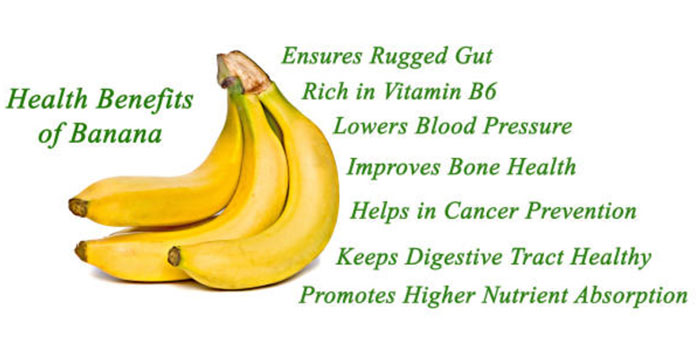Magnesium is one of the most important and multipurpose minerals in the world of nutrition. It influences a cascade of physiological processes that have an effect on our health as a whole, making it an essential factor in preserving our wellness. Magnesium is a very versatile mineral that helps with a wide range of bodily functions, including building strong bones, proper heart function, muscle function, and energy generation. Our goal is quite clear: to identify the many healthy food sources of magnesium. In addition to illuminating the wide variety of magnesium-rich foods, this all-inclusive guide will explain why it's crucial to include them in our regular diets. In order to make the most of magnesium-rich foods for a better existence, let's explore their universe.

Magnesium: An Essential Nutrient
When it comes to our general health and wellness, magnesium is undeniably a crucial mineral. It is a mineral that plays an essential role in many bodily functions. Magnesium has a busy day ensuring that our bodies perform at their best from the minute we get up until we sleep. This essential mineral has an effect on energy generation, blood pressure management, neuron function, muscle contractions, and over 300 metabolic processes. Our bodies would have a hard time performing these essential functions without enough magnesium, demonstrating the crucial role of this sometimes-overlooked element in our everyday lives. Here we shall explore magnesium's varied function in human health and its importance as an essential mineral in more detail.
Benefits of Adequate Magnesium Intake
Adequate magnesium intake offers a multitude of health benefits that are crucial for maintaining overall well-being. This essential mineral plays a significant role in promoting heart health by helping to regulate blood pressure and reducing the risk of cardiovascular issues. Furthermore, magnesium contributes to bone health by supporting bone density and strength, making it essential for preventing conditions like osteoporosis. Beyond cardiovascular and bone health, magnesium is involved in muscle function, helping to prevent muscle cramps and spasms. Additionally, it plays a role in nerve function, contributing to a well-functioning nervous system. Furthermore, magnesium aids in energy production, which is vital for our daily activities. As we explore the benefits of sufficient magnesium intake, it becomes evident that this mineral is not only essential but also offers a wide range of advantages for our overall health and vitality.
Natural Food Sources of Magnesium
A variety of natural food sources provide ample magnesium, making it accessible through a balanced diet. Fruits like bananas and avocados are excellent sources of this essential mineral, contributing not only to magnesium intake but also offering other valuable nutrients. When it comes to vegetables, leafy greens like spinach and kale stand out as magnesium-rich options. Nuts and seeds, such as almonds, cashews, and pumpkin seeds, are packed with magnesium and make for convenient snacks or additions to meals. Whole grains like brown rice and quinoa are also notable sources of magnesium, promoting both heart and digestive health. By exploring these diverse food groups, individuals can easily incorporate magnesium into their diets, reaping the many health benefits it offers.
Daily Magnesium Requirements
Meeting daily magnesium requirements is essential for maintaining optimal health. Age and gender impact the daily magnesium intake recommendation. In general, the recommended daily consumption for adult males is 400–420 milligrams, while adult females require an approximate reduction to 310–320 milligrams. Women who are pregnant or nursing may require an elevated dosage. Similar to adults, children and adolescents have specific magnesium requirements that escalate with age. It's crucial to emphasize that getting magnesium from dietary sources is the preferred way to meet these requirements, as it ensures the body receives this vital mineral along with other beneficial nutrients found in magnesium-rich foods. By following dietary guidelines and incorporating magnesium-rich foods into daily meals, individuals can support their overall well-being and enjoy the health benefits associated with adequate magnesium intake.

Cooking and Meal Ideas
Incorporating magnesium-rich foods into your daily meals can be both creative and beneficial for your health. Start your day with a magnesium-packed breakfast by adding chopped almonds and spinach to your omelet or enjoying a bowl of oatmeal topped with sliced bananas and chia seeds. For lunch, opt for a quinoa salad with chickpeas, kale, and avocado, drizzled with a tahini dressing. As a snack, munch on pumpkin seeds and dried apricots. It is advisable to commence the evening meal with broiled salmon served as the main course, complemented by steamed asparagus and brown rice as side dishes. These meal ideas not only satisfy your taste buds but also ensure you're getting a healthy dose of magnesium to support your well-being. Experiment with different recipes and food combinations to create delicious and nutritious dishes that enhance your daily magnesium intake.
Dietary Considerations and Absorption
While incorporating magnesium-rich foods into your diet is essential, it's also important to consider factors that can affect magnesium absorption. Some dietary choices, like excessive caffeine or alcohol consumption, can lead to increased magnesium excretion by the body. Additionally, certain medications, such as diuretics, may reduce magnesium absorption.
To optimize magnesium absorption, it's advisable to limit caffeine and alcohol intake and consult your healthcare provider if you're taking medications that may interfere with magnesium absorption. All in all, being mindful of these dietary considerations and making informed choices can help ensure that you get the maximum benefit from the magnesium-rich foods you incorporate into your meals, ultimately supporting your overall health and well-being.
Conclusion
The mineral magnesium is essential for several body processes, including maintaining healthy heart function and strong bones. The advantages of getting enough magnesium and eating foods that are high in magnesium may have a big impact on your health. Making sure you're getting enough magnesium each day is as easy as looking at different natural dietary sources. The health benefits of magnesium may be amplified when you take into account the elements that influence its absorption and make deliberate dietary choices.




